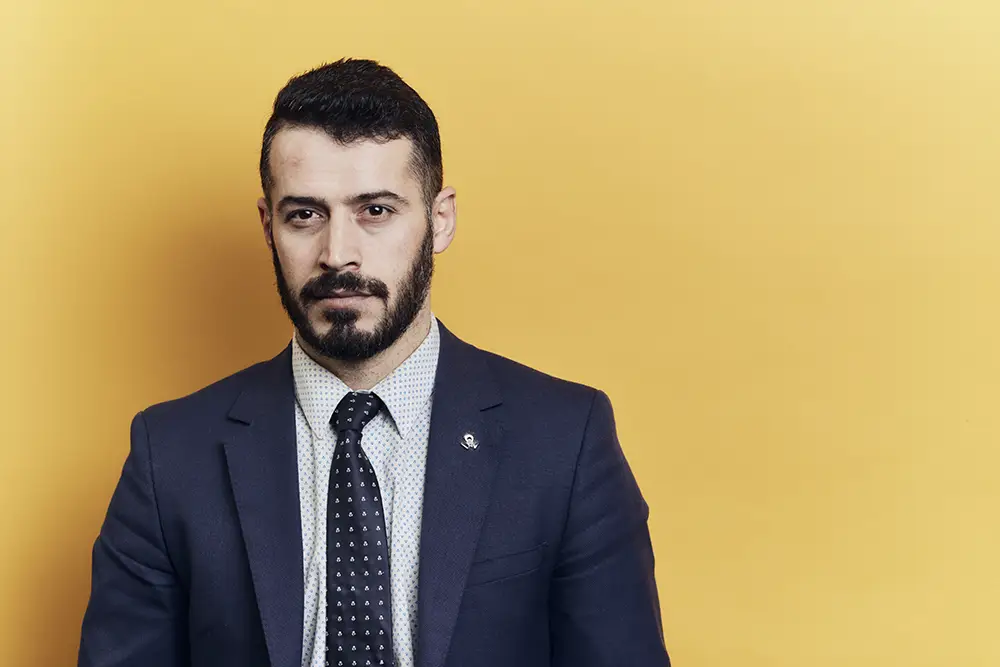
Since arriving in Australia in 2023, Syrian refugee and Automation Engineer, Alaa Daher has done all the right things to find employment in his field. He developed his English language skills, gained his driver’s license, had his Bachelor’s degree recognised, and completed work-readiness workshops. Yet the ambitious 37-year-old has received the same response to the more than 70 job applications he has submitted – “Sorry, you need Australian work experience”.
Before the war in Syria forced Alaa to leave his homeland, he completed a Bachelor of Science and Electrical Engineering/Control from Damascus University. He went on to lead a large team of engineers as a Network Administrator at Syria’s National Agency for Network Services. Alaa was passionate about his job and eager to advance his career.
So, when Alaa received a humanitarian visa to come to Australia, his number one priority was to continue his career and find a job.
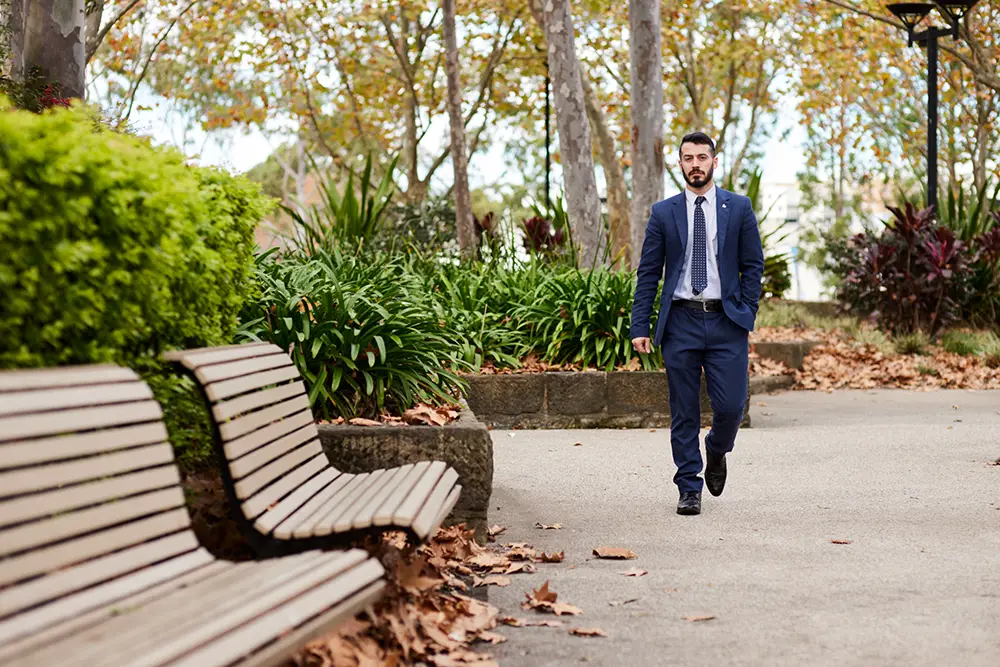
“When I came here, I believed Australia was a country of qualified people who respect Bachelor’s degrees. I was confident that employers would guide me to find the correct role in my field where I could contribute to their business.”
To have the best chance of finding suitable employment, Alaa needed both recognition of his formal education and to develop his understanding of Australian work rights and culture.
Within months of arriving in Australia, he was supported by the SSI employment team and case worker to get his driver’s licence and successfully undertake the process to have his degree recognised. To enhance his soft skills, Alaa also attended several work development workshops, on topics such as how to find employment in Australia, creating a professional network, resumes and cover letters, work rights and culture, and mock interview practices.
“When I received my recognition, I started applying for jobs straight away. I don’t want to be dependent on Centrelink, it is important to me to be independent and support myself,” he said.
Frustratingly, as the responses to his applications arrived in his inbox and he received feedback from interviews, Alaa was repeatedly told he was not suitable for the position due to his lack of Australian work experience.
“If I have the qualifications and experience required, I can do the job. Why are my skills disregarded if my experience is from overseas? This is an unfair process which means many workers like me are missing out, and businesses are not getting the workers they need,” said Alaa.
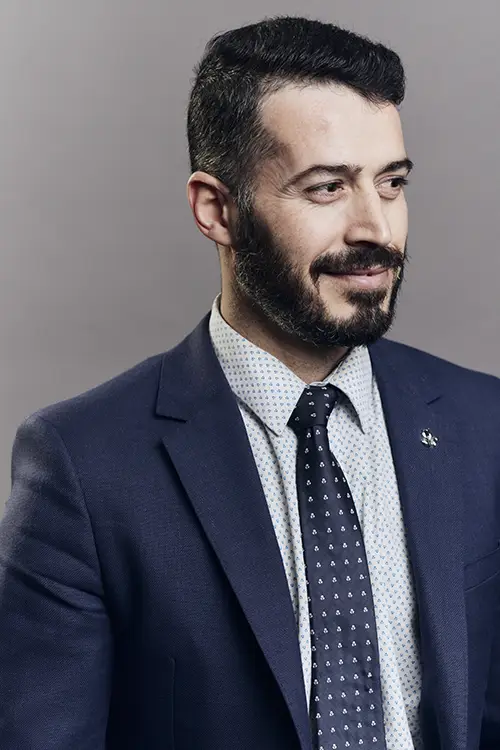
In an attempt to get his foot in the door, Alaa resorted to seeking unpaid roles and internships, without success.
“It is very difficult if you were not born in Australia. I have offered to work for free or in lower-skilled roles but have not had success. How are you supposed to get Australian work experience if nobody gives you a chance?” he asked.
To support himself while he continued to seek work in his area of expertise, Alaa found employment with a bank as a banking assistant.
He is grateful for the opportunity to earn a living and is taking any opportunity to keep his customer service and communications skills fresh but remains determined to continue his engineering career in Australia.
“If we make the system for matching people with skills and qualifications with businesses that need the roles simpler, there will be benefits not only for people, but also for the government and the country.”
Earlier this year, our team at SSI Legal Pty Ltd. launched SSI’s very own legal service dedicated to providing immigration and citizenship assistance to clients across Australia. Our mission is simple: to guide our clients through the complex migration system, making it more simple, affordable, and accessible to everyone.
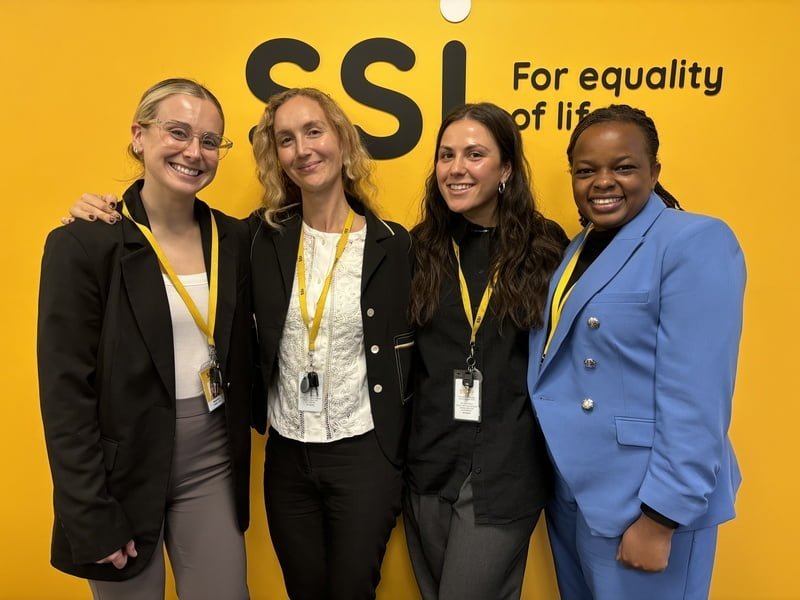
Senior Lawyer, Stephanie Camilleri, along with her professional team of lawyers Lucy and Grace and paralegals Emily, Julianne and Anjanaa service SSI Legal clients with a shared genuine passion for helping others. As Stephanie put it, “It’s not just about the law; it’s about changing lives and reuniting families. This philosophy drives everything we do.”
“From partner visas and skilled worker visas to student and protection visas, we cover a wide range of services to both individuals and organisations. Our team is here to support our clients through every step of the journey,” she added.
The team brings an incredible wealth of knowledge and experience, and together, are committed to delivering personalised, compassionate legal advice and support.
“One of our recent successes involves reuniting a family that had been separated for 12 years. Seeing the joy on our client’s face was a powerful reminder of why we do what we do,” Stephanie said.
“Every case is unique, and we approach each one with the care and attention it deserves.”
Operating out of Melbourne but serving clients nationwide, the SSI Legal team is ready to assist clients from all backgrounds, no matter where they are in Australia or beyond.
“We understand the challenges and uncertainties of immigration, and our goal is to make the process as smooth and stress-free as possible,” Stephanie added.
SSI Legal Pty Ltd is a certified social enterprise offering legal advice and services to individuals and organisations on a fee-for-service basis. For more information or to speak to one of our dedicated immigration lawyers, visit our website: www.ssi.org.au/our-services/ssi-legal/about-ssi-legal
As the humanitarian catastrophe in Gaza, and specifically Rafah, reaches a crisis point, SSI reiterates our call for an immediate ceasefire in Gaza and urgent re-establishment of safe border crossings to enable civilians with visas to reach safety.
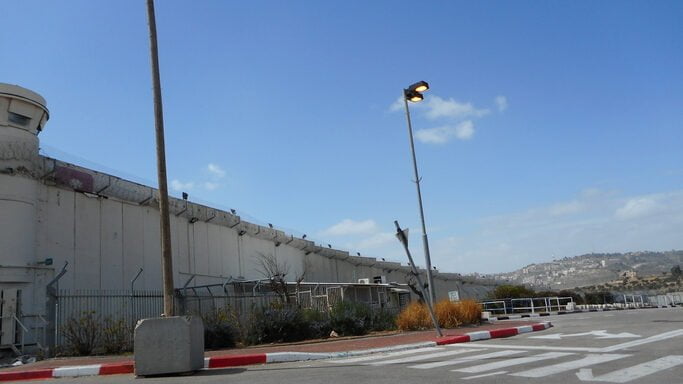
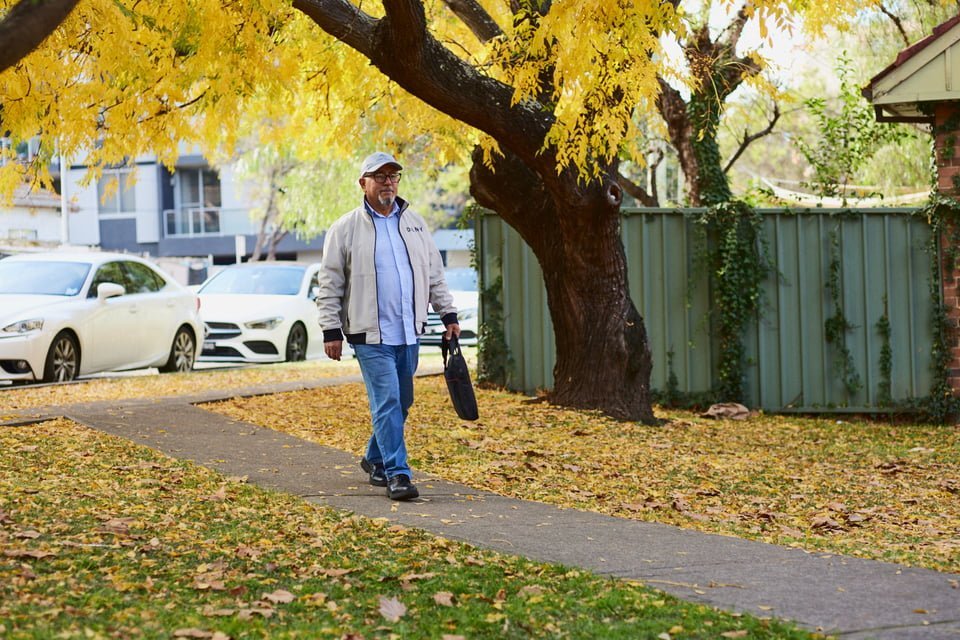
Syrian-born AbdAlmassih had enjoyed a successful IT career that spanned more than two decades in his homeland.
A proficient programmer specialising in design, development, and integration, AbdAlmassih built on his experience with prominent corporations and public sector entities in Syria to establish his own IT company.
“I love IT, it’s my area of expertise – my specialty. It’s what I know best,” he said.
Amidst the eruption of the civil war, AbdAlmassih and his family were forced to flee Syria and found safety in Western Sydney, Australia, in November 2022.
Like most highly skilled refugees and migrants, AbdAlmassih has encountered obstacles when attempting to break into the tech industry in Australia.
Since enrolling in SSI’s Refugee Employment Support Program (RESP), AbdAlmassih has received support in navigating the local job market. However, he is still facing challenges of having his overseas IT qualifications, a diploma in systems analysis and programming from France, recognised in Australia.
The Australian overseas qualification authority requires proof of work experience in IT in Syria, such as pay slips and work contracts, to meet the eligibility criteria in his field.
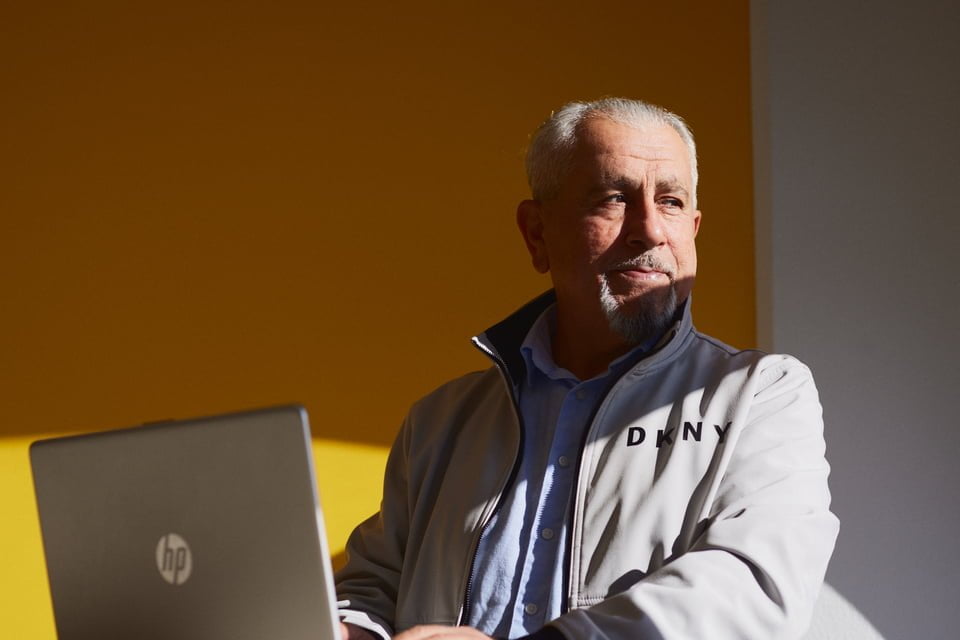
However, like many highly skilled newcomers, AbdAlmassih has found it impossible to source and obtain this evidence.
“We left our country in a hurry, without much – leaving behind many documents. All I have here is my university documents, some personal papers and the business card of the company I ran in Syria,” he said.
For many workers from outside of Australia, like AbdAlmassih, legitimate work is completed as cash jobs without documentation.
He explained, “Overseas, many workers don’t receive pay slips. That’s just how it works.”
AbdAlmassih has been unable to reconnect with his former employers in Syria. He explained that many companies closed during the war, and he lost these connections from his previous work years ago. This has made it difficult for him to access the evidence needed to have his work formally recognised.
Regardless, AbdAlmassih has often felt disheartened by his dream of getting his studies recognised, knowing that even then, it wouldn’t be enough.
“I’ve found that many IT employers won’t acknowledge a degree from overseas, thinking it’s not strong enough, and often insist on a local degree from Australia,” he acknowledged.
“Even unpaid volunteering roles in the industry are turning me down. I tell these employers I will work for free, or I will work for half a normal wage. I don’t understand. I have 20 years’ experience in my field. I apply to many jobs, yet I never receive any response.”
On the other hand, Australia is desperate for tech talent. According to recent figures, 70 percent of IT jobs in Australia have skills shortages while demand is only set to increase.

Determined to break into the industry he is passionate about, AbdAlmassih enrolled in a TAFE Cert 4 program in web development to acquire local qualifications in his field. He was unable to complete the course because, like many newcomers, he faced difficulties taking the course in a new language.
“I knew the content; I know it so well. But I found it difficult to understand my teacher, especially with the assessments and deadlines. I couldn’t ask her to speak more slowly or clearly to help me understand – I was in a room surrounded by Australian students,” he said.
AbdAlmassih is currently enrolled in his fourth TAFE course to enhance his English skills and will soon undertake programming and web development courses. He continues to actively pursue relevant employment opportunities and hopes that soon someone will give him a chance.
“I want to work, I love working. I want to put my skills to use in this great country.”
RESP has been funded by the NSW Government.

A passionate painter, Ali balances his art and graphic design with a security job, studying and plans to mentor the next generation of Australia’s diverse artists.
Ali’s arts career started at a young age. At 12 years old, Ali had his first exhibition in his local town in Syria exploring themes of nature and the environment.
“Even as a kid I always loved drawing and painting, I was born with it. I continued to pursue this passion through studying bachelor’s degree in visual communication from the Faculty of Fine Arts in Damascus in Syria,” he said.
While Ali was studying, he started his own graphic design freelance business, participated in exhibitions across Syria, and offered design services pro bono alongside other volunteering – but in his words, ‘the war damaged everything’.
Ali moved to neighbouring Iraq where he worked in senior graphic design roles across various industries, including print and production and the on-demand delivery startup Lezzoo, which is now going international.
By the time Ali landed in Australia in 2022, he had a degree and over 10 years of varied professional experience in arts and design. This is also when Ali’s struggles with finding meaningful work that matched his experience and skills began.
“Getting my qualifications recognised was easy for my profession compared to doctors or engineers. With SSI’s help, it only took me three months and they also helped me cover the cost. The challenging part was getting employers to see the value in my overseas skills and degree,” he recalled.
“I applied for around 100 graphic design jobs. I was applying for everything, any opportunity that was related to my skills. I only got one response that didn’t lead to employment.”
Ali is clear that Australian employers are missing out by not giving professionals like him a chance.

While Ali sent 100 applications to try to find work in graphic design, it only took one application to land a job in security. Ali now works as a security officer in a data centre to help him support himself financially so he can continue pursuing his passion of arts and design.
“It’s so important to highlight to employers that workers with overseas qualifications can be a valuable addition to their business as they bring new ideas, diverse skills and experience.”
“Offering programs focused on integrating refugees into internship programs would go a long way to help bridge the gap between overseas qualifications and local work requirements and culture,” Ali reflected.
“I now work as a self-employed graphic designer and artist, and I’ve completed various projects including drawings, paintings, branding and logo designs for musical artists, community organisations, restaurants, cultural associations among other clients in Sydney, Melbourne and Brisbane.”
“I’m also currently pursuing a business course to strengthen my local knowledge and entrepreneurship skills, and I’m aiming to complete a graphic design certificate to align with local standards and get more understanding of the market,” he added.
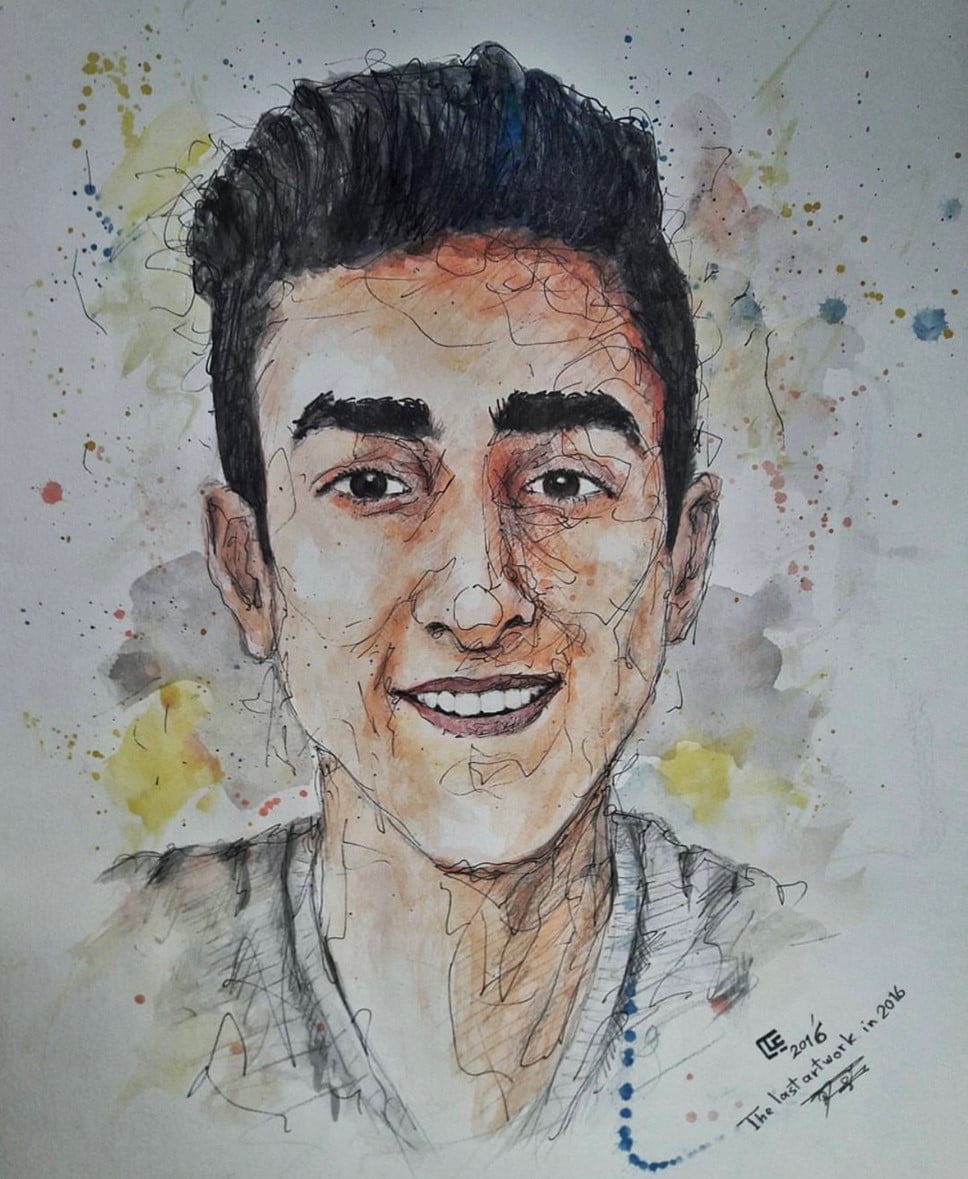
Beyond graphic design, Ali continues to pursue his passion in painting and drawing. When Ali arrived, he was connected to a community of artists who have been instrumental in shaping his artistic journey in Australia.
“My case manager referred me to SSI’s Art and Talent Committee, which allowed me to attend workshops and exhibitions – I sold one painting in a recent exhibition I was invited to,” Ali said.
“I continued to expand my skills by participating in a ‘Train the Trainer’ workshop with artist and educator Dr Paula Aboud. Additionally, I had the opportunity to facilitate a calligraphy and painting workshop organised by SSI at the Refugee Welcome Centre, where I shared my knowledge with newly arrived refugees and Inner West locals.”
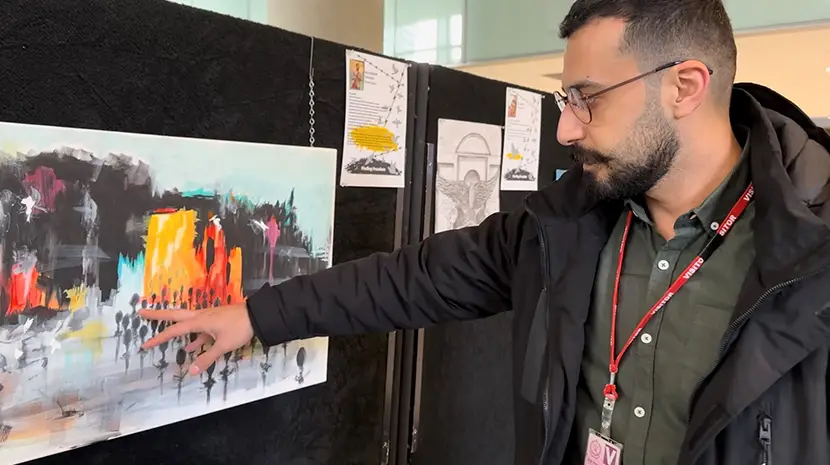
Last year during Refugee Week, Ali was invited to showcase his art at the NSW Police Force Headquarters in Parramatta and he will return this year to showcase his art in the same venue. The theme again explores ‘freedom’, but this year with the addition of ‘family’.
For Ali, his family continues to motivate him to move forward and achieve success. Ali is proud he comes from a family of artists and musicians, and he grew up watching his dad paint and listening to his uncle play instruments of all kinds, from the violin to the traditional Middle Eastern instrument oud.
“Reuniting with my family in Australia is my key motivator and ultimate goal. I eagerly anticipate the day when we will be together again after eight years.”
Two years on Australian soil, Ali has a lot to be proud of and still a lot to strive towards.
“I am most proud of my resilience and ability to rebuild my life and career despite being separated from my family,” he acknowledged.
“Achieving recognition for my work and building connections in the local arts community has been a significant milestone for me. I want to keep building on this and mentor emerging artists from diverse backgrounds so I can contribute to the cultural landscape of Australia.”
Learn how you can get involved and support refugees shape their own path this Refugee Week. Find out more about our campaign and events near you.
Join the campaign to break down barriers so skilled refugees and migrants can work in their fields of expertise and contribute billions to Australia’s economy. Learn more about our Billion Dollar Benefit campaign.
Heather, a dedicated parent of two young children, was initially referred to the ParentsNext program when it was mandatory. Like many, she had reservations due to its association with Centrelink and potential financial implications. Her primary focus was on caring for her children, and she wasn’t ready to dive into job searching. However, her first appointment at ParentsNext was a pleasant surprise, with a welcoming and understanding atmosphere.
At her own pace
ParentsNext allowed Heather to engage with the program at her own pace, without immediate pressure to pursue employment. This flexibility was crucial as she navigated significant life challenges, including the end of her relationship. Throughout these difficult times, Heather received unwavering support from her ParentsNext facilitator during routine check-ins.
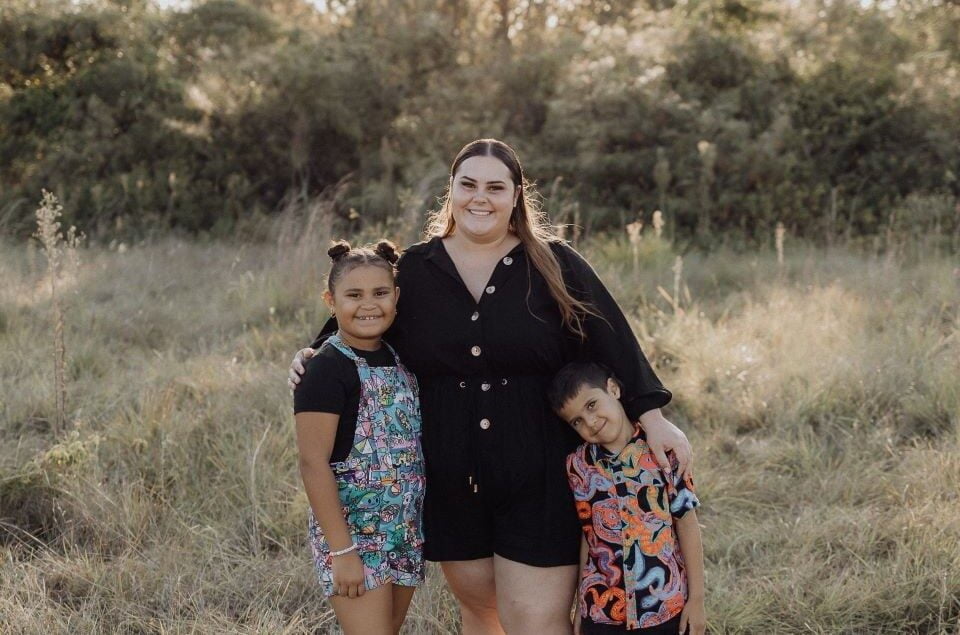
Finding employment
When Heather realised it was time to find employment, she turned to her facilitator for guidance. Despite uncertainties about her career direction and skills, she received invaluable assistance, including job leads, resume help, and mock interviews. This support led her to a fulfilling role as a disability support worker. Although health issues eventually forced her to leave that position, Heather persevered. She independently secured a retail job but remained determined to achieve more.
Heather continued her job search and found an administrative role within the ParentsNext program with SSI. With her facilitator’s guidance, she successfully navigated the application process and transitioned to full-time employment. For over 12 months now, Heather has been an Admin Intake Officer, managing intake processes, coordinating appointments, and supporting clients accessing services.
Overcoming barriers
Heather has overcome numerous barriers, including a lack of work experience, financial strain, stigma fears, single parenthood, and health issues. Her current role has boosted her financial stability and confidence and allowed her to connect with other parents, offering them hope and support.
Building a bright future
Heather loves connecting with clients and empathising with their journeys. She encourages those doubting themselves, saying, “I was you and have been in your position. You can do anything.”
Heather aims to become a facilitator and continue building her career. She also achieved a personal goal of buying her dad a car, highlighting how her career has positively impacted her family’s life.
Heather’s story exemplifies the resilience and capabilities of parents in the ParentsNext program. Her journey is a testament to the program’s commitment to supporting parents through their unique challenges and toward their future goals.
SSI welcomes the Federal Government’s announcement of a new study that will tackle antisemitism, Islamophobia, and the experience of First Nations people within the Australian university sector. The study aims to examine racism in universities and provide recommendations to ensure the safety of students and staff members.
Australia needs to create a safe environment for everyone, irrespective of their language, race or cultural background.
What is clear from the growing evidence base is that racism is prevalent in Australian communities. Racism poses a significant social and economic threat to our country.
Efforts to support social cohesion must go beyond the positive promotion of multiculturalism and actively denounce racism.
We view this study, which will be led by the Race Discrimination Commissioner, as an important step towards better understanding the prevalence and impact of racism and, importantly, practical actions to reduce it.
SSI continues to call for a coordinated, national response to eliminate racism and promote social inclusion, both on campuses and across our country. Australia will be stronger and safer for it.
SSI welcomes the vision set out in the Federal Government’s newly released Early Years Strategy as a step towards early childhood policies, programs and services that will support the best outcomes for all children, regardless of their backgrounds.
This Early Years Strategy is underpinned by the principles of equity and inclusion, including a commitment to provide foundational supports to children with potential developmental delays and to address these concerns early.
We also commend the focus on maintaining children’s identities and cultural connections. This sits alongside a commitment to empower parents, caregivers and families in ways that are culturally responsive and targeted – something we see the importance of throughout our work with culturally diverse families, including as part of the national Community Hubs program.
From our work delivering place-based initiatives such as our involvement in Logan Together, we recognise the importance of local solutions for local problems, reflected in the Strategy.
Importantly, this is Australia’s first Early Years Strategy to strengthen accountability, coordination and collaboration across all levels of government over the next 10 years, setting a clear roadmap for change with action plans and an outcomes framework to monitor and track progress. SSI looks forward to being part of these collaborative initiatives and translating them into tangible outcomes for all Australian children.
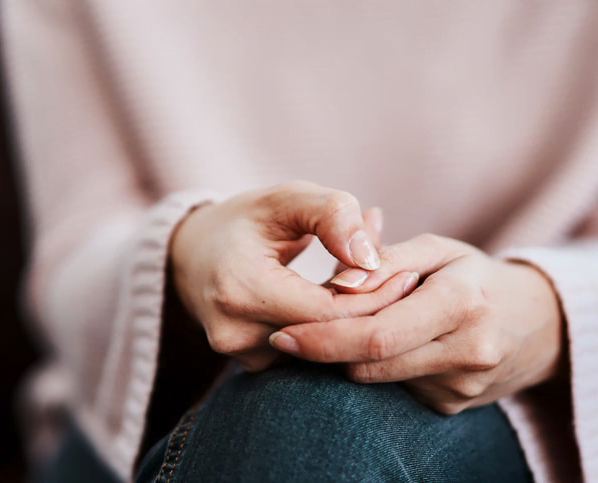
SSI welcomes the NSW Government’s funding package of $230 million over four years as an essential initial response and immediate action to support meaningful, real solutions that will keep women and children in the state safe.
SSI further welcomes the comprehensive nature of the package encompassing prevention, early intervention, crisis response, justice system improvements, and service sector support for enhanced capacity. It is particularly heartening to see funding targeted towards children who are often overlooked in the development of government policy, particularly those from multicultural backgrounds.
It is critical that our safety systems and services are responsive to communities in all their diversity. At present, the system is complex and difficult to navigate for multicultural communities, particularly those who are new to Australia.
Working with migrant, refugee and multicultural communities, we see firsthand the importance of integrated services and case management in support of women impacted by gender-based violence.
SSI provides culturally responsive safety services to migrant and refugee women and children, works with multicultural communities to design and implement awareness raising initiatives, and builds capacity of settlement services to support women, children and families.
We urge the NSW government to ensure that equitable access, experience and outcomes—including specifically for migrant and refugee women and children—are central to the implementation of the package and are embedded in the ongoing focus on addressing the crisis in the state of women’s and family safety.
SSI is committed to working with the NSW government and the specialist domestic, family and sexual violence sector to ensure meaningful collaboration in tackling the root causes of this crisis and to bring about a positive change for all women and children.
Amidst the challenges of skills shortages, an aging population, and escalating cost of living pressures, it is critical all Australian residents are supported to reach their potential and contribute to their community.
(more…)